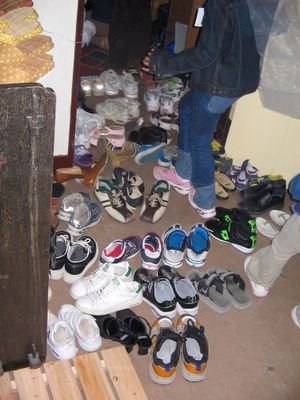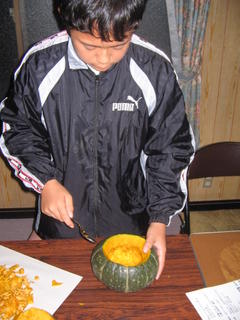Have you ever wondered about the difference between the following two phrases: ‘I got in the boat,’ and ‘I got on the boat’? Neither had I, until tonight during a private adult lesson with a man who works at a shipyard. We were talking about ship building and I said ‘on the boat,’ and he thought I met ‘on top of the boat’ and then I spent a half an hour trying to explain why in English, we get ‘on’ a bus, a plane, a ship, or a ferry, but we get ‘in’ a taxi, a car, or a canoe. The more I talk with these poor Japanese people who choose to subject themselves to our silly language, the more I am amazed that they can speak English at all. Not that I think English is impossible to get a handle on, there are plenty of fluent foreigners, it’s just that as a learner of Japanese, a language conveniently built upon an organized framework of strict rules and principles, with few exceptions, oddities, irregularities or contradictions, I can’t imagine putting up with a foreign language so inconsistent, illogical, and full of wholes as is English.
This problem pops up almost every day in my teaching, and makes explaining grammar practically worthless. Last week while trying to teach the phrase “I have to go to (blank)” to a group of ten year olds, I repeatedly had to correct their use (or rather misuse) of the ‘particular the.’ After one student said, ‘I have to go to pool,’ I explained that he should say, ‘the pool,’ which only confused another student who then said, ‘I have to go to the house.’ To him, I suggested saying ‘my house,’ to which he responded, ‘I have to go to the my house.’ Still another student offered the sentence, “I have to go to the school,’ which I stopped short of explaining was okay in some instances but not in others.
Though I admit it is a great disservice to my students, and I am sure it is the reason Japanese English learners have such a problem with the nuances of English, at this point in the grammar tailspin I usually choose to do what most English teachers in this country have chosen to do, and ignore the mistakes and focus on helping my students with the overall meaning, hoping that someday they’ll figure it out.







